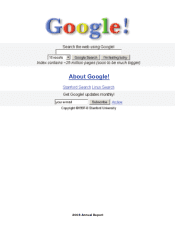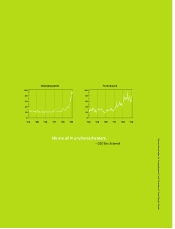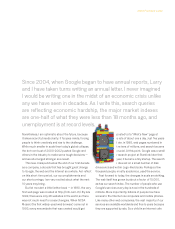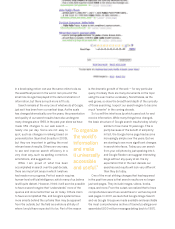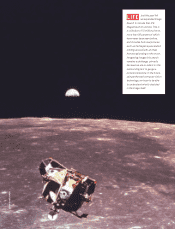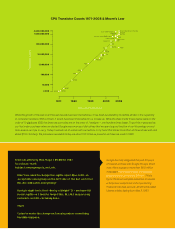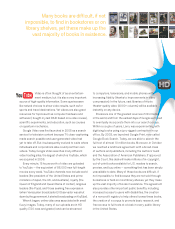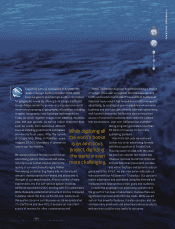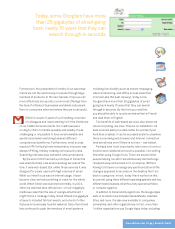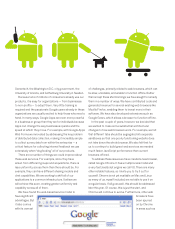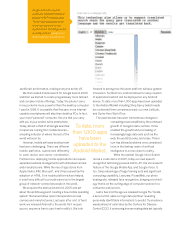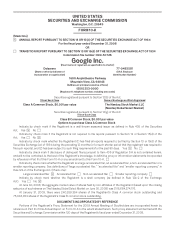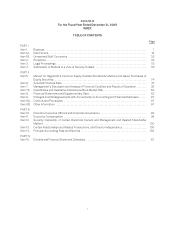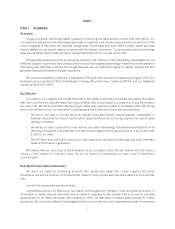Google 2008 Annual Report Download - page 8
Download and view the complete annual report
Please find page 8 of the 2008 Google annual report below. You can navigate through the pages in the report by either clicking on the pages listed below, or by using the keyword search tool below to find specific information within the annual report.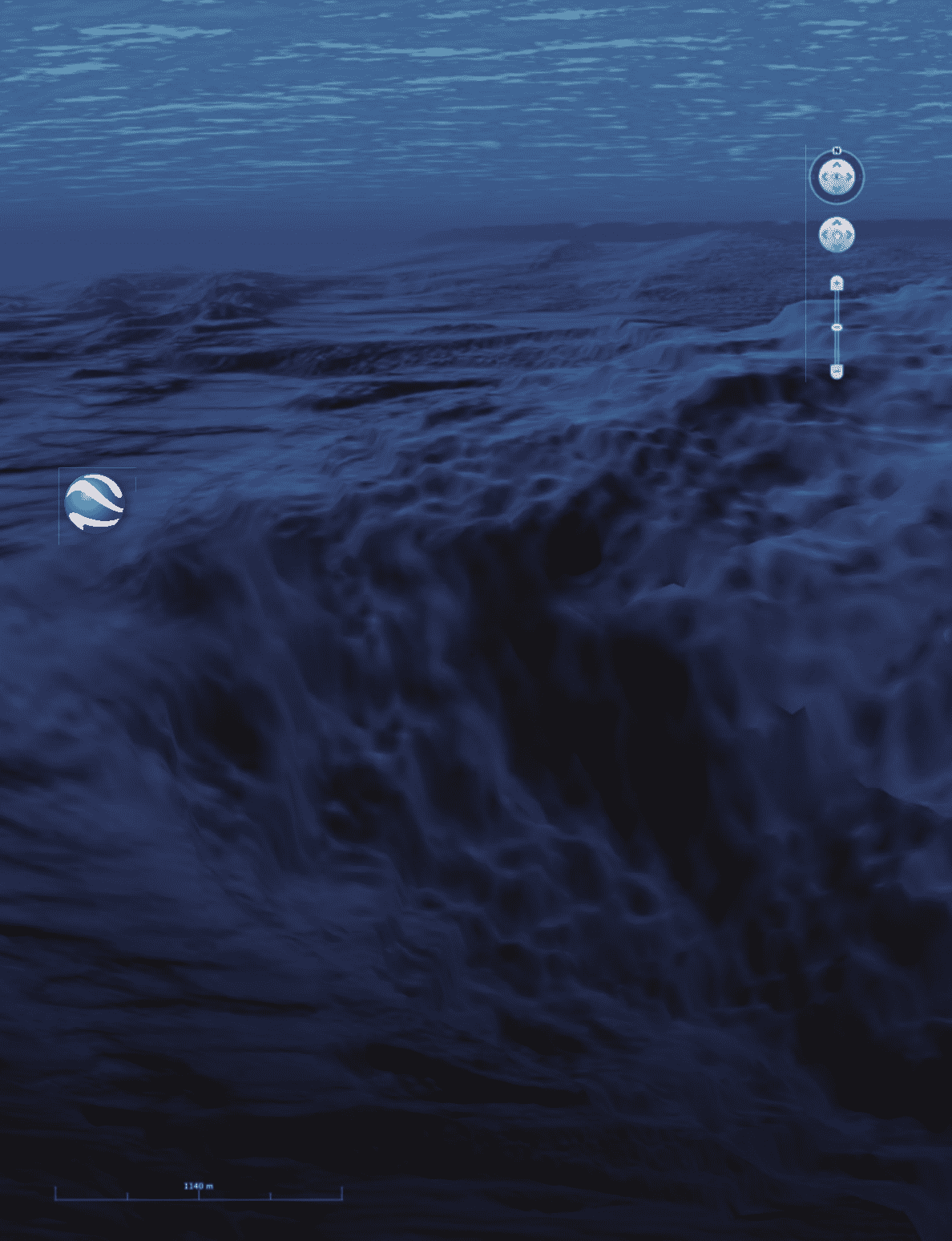
N
Beginning with our acquisition of Keyhole (the
basis of Google Earth) in October 2004, it has
been our goal to provide high-quality information
for geographic needs. By o ering both Google Earth and
Google Maps, we aim to provide a comprehensive world
model encompassing all geographic information including
imagery, topography, road, buildings, and annotations.
Today we stitch together images from satellites, airplanes,
cars, and user uploads, as well as collect important data,
such as roads, from numerous di erent
sources including governments, companies,
and directly from users. After the launch
of Google Map Maker in Pakistan, users
mapped 25,000 kilometers of uncharted
road in just two months.
We always believed that we could have an
advertising system that would add value
not only to our bottom line but also to the
quality of our search result pages. Rather
than relying on distracting fl ashy ads, we developed
relevant, clearly marked text-based ads above and to
the right of our search results. After a number of early
experiments, the fi rst self-service system known as
AdWords launched in 2000 starting with 350 advertisers.
While these ads yielded small amounts of money compared
to banner ads at the time, as the dot-com bubble burst,
this system became our life preserver. As we syndicated
it to EarthLink and then AOL, it became an important
source of revenue for other companies as well.
Today, AdWords has grown beyond just being a feature
of Google. It is a vast ecosystem that provides valuable
tra c and leads to hundreds of thousands of businesses:
indeed in many ways it has helped democratize access to
advertising, by creating an open marketplace where small
business and startups can compete with well-established,
well-funded companies. AdWords is also an important
source of revenue for websites that create the content
that we all search. Last year, AdSense (our publisher-
facing program) generated more than
$5 billion of revenue for our many
publishing partners.
Also in the last year we ventured
further into other advertising formats
with the acquisition of DoubleClick.
This may seem at odds with the value
we place on relevant text-based ads.
However, we have found that richer ad
formats have their place such as video
ads within YouTube and dynamic ads on
game websites. In fact, we also now serve video ads on
television with our AdSense for TV product. Our goal is to
match advertisers and publishers using the formats and
mediums most appropriate to their goals and audience.
Despite the progress in our advertising systems and
the growth of our base of advertisers, I believe there are
signifi cant improvements still to be made. While our ad
system has powerful features, it is also complex, and can
confuse many small and local advertisers whose products
and services could be very useful to our users.
While digitizing all
the world’s books
is an ambitious
project, digitizing
the world is even
more challenging.
B
© 2009 Google - Data: U.S. Navy

